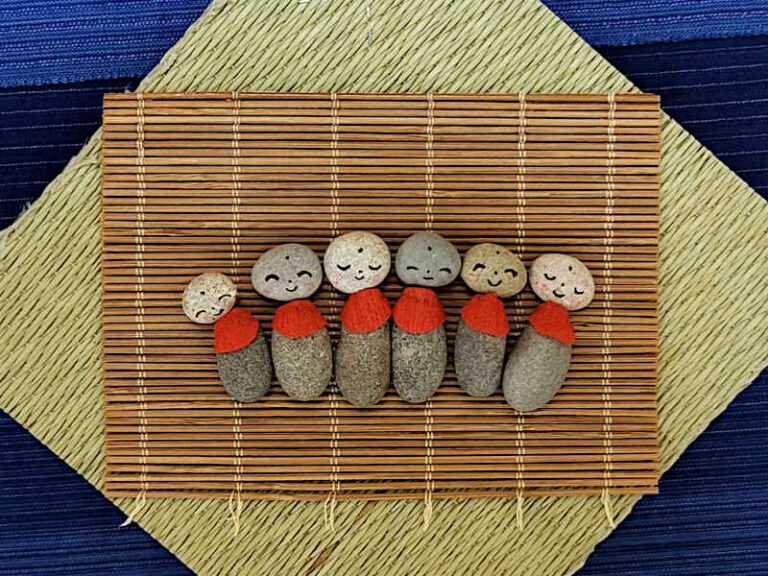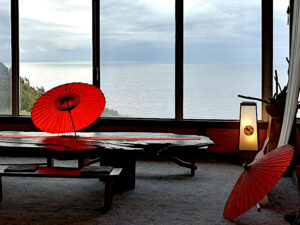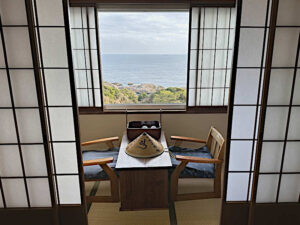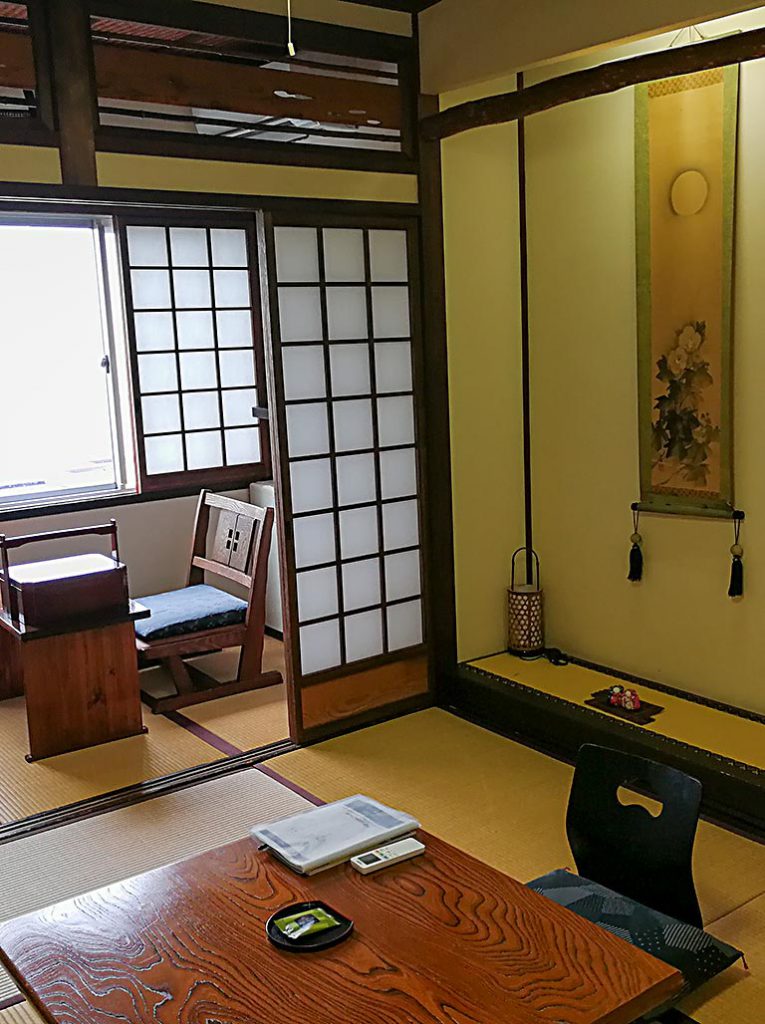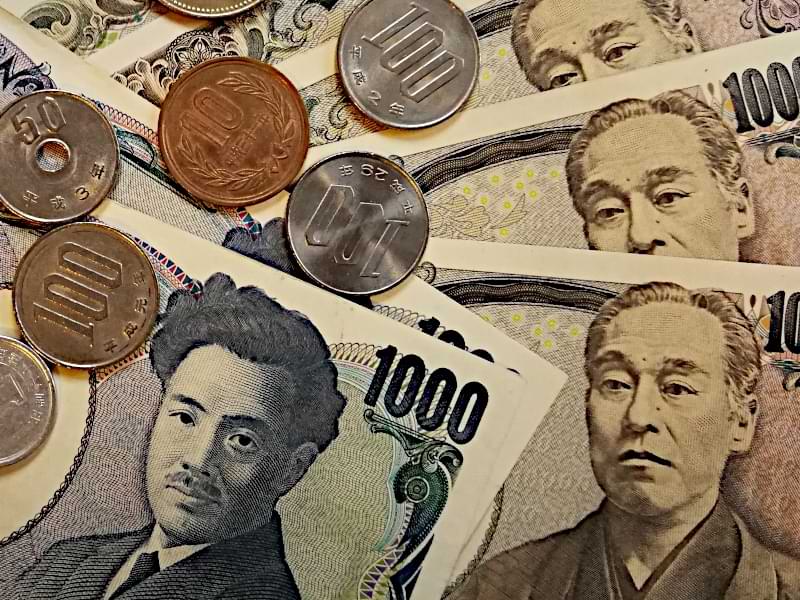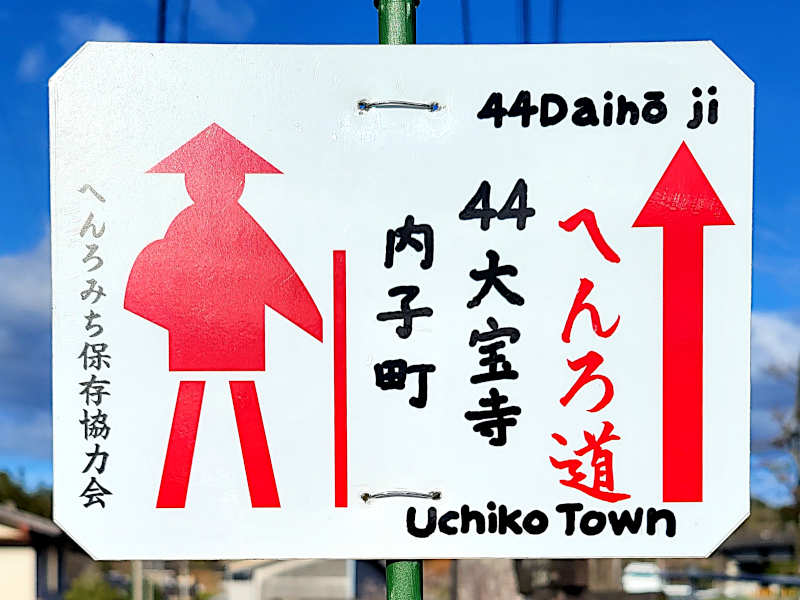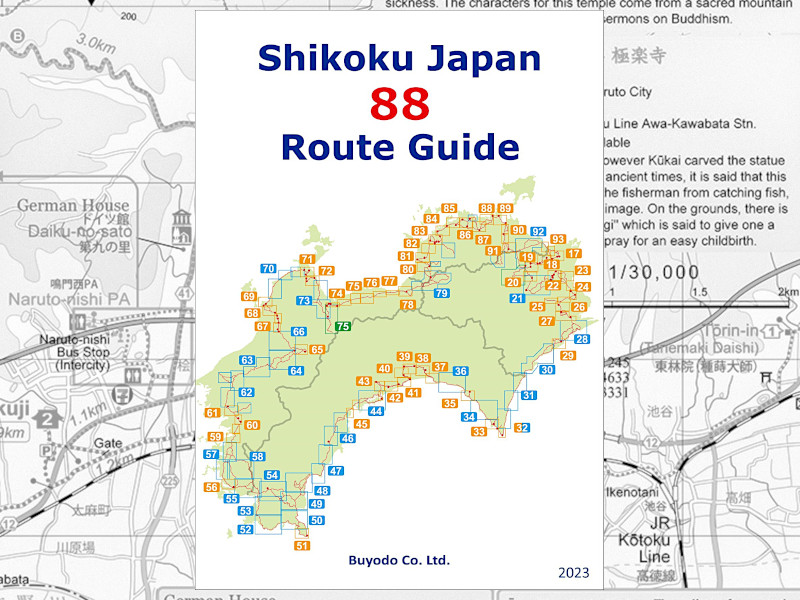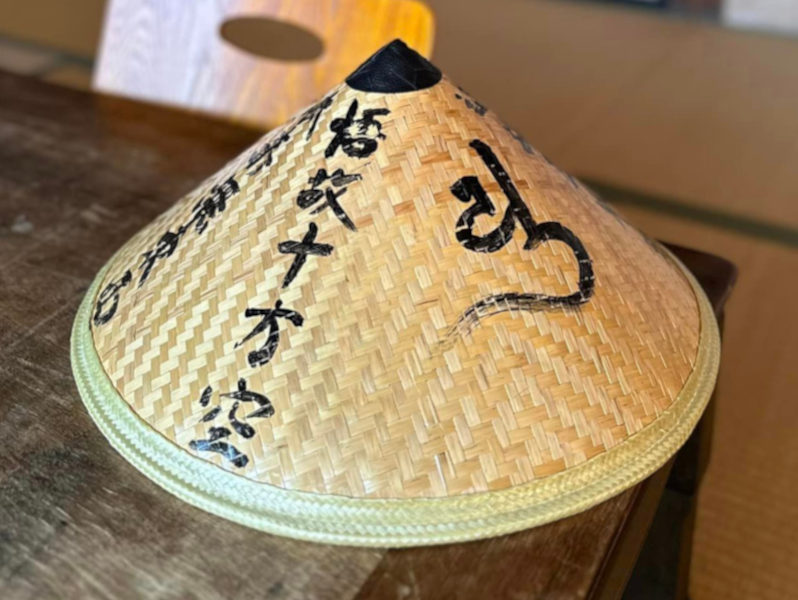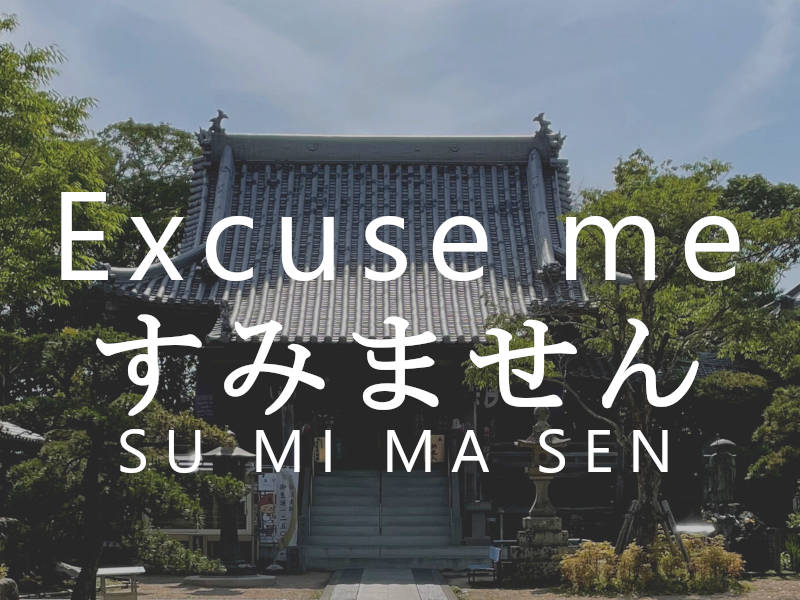When I was preparing for my first Shikoku pilgrimage, I had one question in particular in mind: What accommodation is available along the route and how can I book a place to stay?
In this article, I will share my experiences and give you an overview of the accommodation options on the Shikoku Pilgrimage Trail!
Henro House
Henro House is a network of lodgings along the Shikoku Pilgrimage Route specially designed for pilgrims.
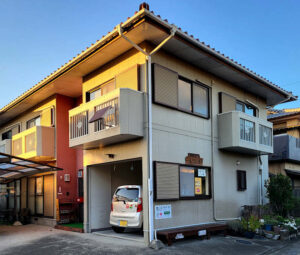
Accommodation can be booked online via the Henro House website or by telephone up to 30 days in advance. Free registration on the website is required before making your first booking.Information on location, facilities, availability and costs (between 3,000 and 4,000 yen) can be found on the Henro House website.
Some offer meals at an extra charge. Accommodation is often in shared rooms. A washing machine and tumble dryer can be used for a small fee. WiFi is usually available.
I highly recommend staying at Henro House. The landlords are often very hospitable, warm and helpful. I have felt very welcome during my stays at Henro Houses.
Shukubō 宿坊 - Accommodation in temples
The following temples on the Shikoku Pilgrimage Trail offer overnight accommodation (as of 1st March 2024):
| No. | Temple | City | Prefecture |
|---|---|---|---|
| 6 | Anrakuji (安楽寺) | Kamiita (上板町) | Tokushima |
| 7 | Jūrakuji (十楽寺) | Awa (阿波市) | Tokushima |
| 19 | Tatsueji (立江寺) | Komatsushima (小松島市) | Tokushima |
| 24 | Hotsumisakiji (最御崎寺) | Muroto (室戸市) | Kōchi |
| 26 | Kongōchōji (金剛頂寺) | Muroto (室戸市) | Kōchi |
| 37 | Iwamotoji (岩本寺) | Shimanto (四万十町) | Kōchi |
| 44 | Daihōji (大宝寺)1 | Kuma-kōgen (久万高原町) | Ehime |
| 58 | Senyūji (仙遊寺) | Imabari (今治市) | Ehime |
| 75 | Zentsuji (善通寺) | Zentsuji (善通寺市) | Kagawa |
| 81 | Shiromineji (白峯寺)1 | Sakaide (坂出市) | Kagawa |
1for bus groups only
These temple accommodations (shukubōs) offer pilgrims the unique experience of staying in a Buddhist temple. Shukubōs are often booked by large groups of pilgrims travelling by bus. Individual travellers are accepted if rooms are available. Temples 44 and 81 only offer accommodation for bus groups.
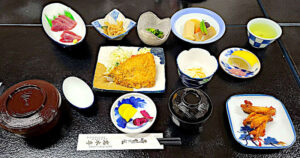
It is possible to attend a religious ceremony after dinner or before breakfast.
An overnight stay without meals is offered at a reduced price.
Rooms are furnished with futons on tatami mats. Yukata (Japanese pyjamas) and towels are provided. Wi-Fi is available and a washing machine and tumble dryer can be used for a small fee. The shared bathroom is used by all guests.
- Accommodation
- Kuri
- Accommodation
- Kuri
- Accommodation
- Maggy
- Accommodation
- Maggy
- Accommodation
- Maggy
- Accommodation
- Maggy
- Accommodation
- Kuri
- Accommodation
- Kuri
- Accommodation
- Maggy
- Accommodation
- Maggy
Minshuku 民宿 and Ryokan 旅館
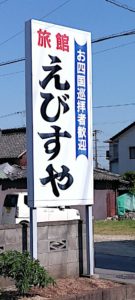
A minshuku is a traditional Japanese family guesthouse offering accommodation with dinner and Japanese breakfast.
A ryokan also offers accommodation with dinner and Japanese breakfast, often with more service and comfort than a minshuku. Prices at ryokans can vary widely. Make sure you check the price before you book.
In 2023, I paid around 7,000 yen for an overnight stay in a minshuku, including meals, and an average of 500 yen more in a ryokan.
The prices are per person and must be paid in cash, as credit cards are rarely accepted.
An overnight stay without meals is available at a reduced price.
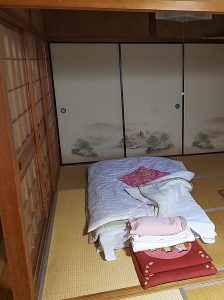
Inns and ryokans often provide a kettle, teapot and cups for making tea. Rooms are furnished with futons on tatami mats. Yukata (Japanese pyjamas) and towels are provided. Wi-Fi is available in most lodgings and a washing machine and tumble dryer can be used for a small fee. The shared bathroom is used by all guests.
Rice, vegetables, fish and green tea are served for dinner and often for breakfast.
Reservations are required no later than early morning.
You should arrive at the minshuku or ryokan around 5:00 p.m. Dinner (around 6:00 p.m.) and breakfast (around 6:30 a.m.) are served at the same time for all overnight guests.
Hotel / Business-Hotel ホテル
Often furnished in a Western style, with a bed and bathroom in the room. Meals are not provided. Japanese breakfast can be booked, sometimes combined with an American breakfast.
Business hotels are often less expensive than hotels.
Flexible arrival times.
Tsuyadō 通夜堂 and Zenkonyado 善根宿
- Tsuyadō
Overnight accommodation in the temple for pilgrims who walk the route. A place to sleep, no meals, no bathroom. In Tsuyadō and Zenkonyado, overnight accommodation is traditionally free or on a voluntary donation basis. If you are interested, ask at the temple if it is possible to stay overnight in Tsuyadō. After spending the night, a donation of 1,000 yen is expected. - Zenkonyado
Private overnight accommodation. The same facilities as Tsuyadō. A donation of 1,000 yen is also expected, or more if a futon is used.
The number of places to stay at Tsuyadō and Zenkonyado is limited. If you can’t find other accommodation, ask at the temple. Or for Zenkonyado, ask private individuals. If you can afford it, it is best to stay in one of the many other paid accommodations, some of which are very cheap.
Booking accommodation
My approach
I booked accommodation for the first 7 to 10 nights on Shikoku for each of my last two pilgrimages in March/April and November 2023. At least 3 weeks before the start of each pilgrimage.
- This means I have reliable accommodation for the first few days.
- I don’t have to spend time planning the daily stages and booking accommodation during this time.
- It also allows me to control my daily stages in the first few days and not to push myself too hard.
- After the first few days on the pilgrimage I have a better idea of how busy the lodgings are.
Recommendations
- Especially in the rural areas of Shikoku, accommodation is limited and in high demand at certain times. Especially from mid-March to the end of May and from early October to the end of November. It is advisable to book accommodation for these periods a few weeks in advance. At least for the first days of your pilgrimage.
- During the cherry blossom season (second half of March), on public holiday weekends and especially during Golden Week (end of April/beginning of May), there are large numbers of Japanese pilgrims and tourists on the trail. Accommodation at these times should be booked well in advance.
- After the first few days of acclimatisation and outside the main pilgrimage times, during the Golden Week and the cherry blossom season, it is advisable for pilgrims on foot not to book overnight stays too far in advance so that they can flexibly adapt the daily stages to their physical condition.
- Reservations at Henro House must be made at least 30 days in advance. Reservations can be made online or by telephone in English or Japanese.
- Overnight stays in minshuku, ryokan and shukubō must be booked by telephone. Online booking is rarely available.
- Some minshuku and ryokan owners speak little English, so telephone bookings can usually only be made in Japanese. Often there is a Japanese speaking fellow pilgrim who can and will help with the telephone reservation. Another option is to ask the owners of the accommodation where you are staying to make a telephone reservation for the next accommodation.
- If a booked accommodation cannot be reached on the planned day or can only be reached well after 5.00 pm, it is essential to call and let them know.
- Hotels, especially in larger cities, can be booked online through major international booking sites.
- Some accommodation can be booked through AirBnB.
- The Shikoku Japan 88 Route Guide is very useful for planning and for booking accommodation by telephone. This guide lists a large number of accommodation options with telephone numbers. It also shows there location and distance to the pilgrimage path.
Accommodation costs
| Accommodation | Typical cost | Meals | ||
|---|---|---|---|---|
| Minshuku | 7,300 Yen | 50 USD | 45 Euro | Dinner + Breakfast |
| Ryokan | 7,800 Yen | 54 USD | 48 Euro | Dinner + Breakfast |
| Shukubō | 8,000 Yen | 56 USD | 49 Euro | Dinner + Breakfast |
| Business Hotel | 6,700 Yen | 47 USD | 41 Euro | None |
| Hotel | 9,000 Yen | 63 USD | 55 Euro | None |
| Guesthouse | 4,200 Yen | 29 USD | 26 Euro | None |
| Henro House | 4,000 Yen | 28 USD | 24 Euro | None |
Sleep outdoors
In many older books, blogs and videos, there are reports of overnight stays outdoors; in henro huts and parks, at rest stops (michi no eki) and train stations. Due to the recent significant increase in the number of pilgrims, locals are meanwhile critical of outdoor overnight stays.
The wild camping discussion
Published by Oliver Dunskus in the Facebook group “Shikoku 88 Ohenro Pilgrimage”, which he administrates:
Dear fellow Henros, the question about wild camping is strongly discussed in our group. Some people think it is ok, some people disagree. I have now asked someone whose opinion may be considered as a reference: Naoyuki Matsushita is the editor of the “Shikoku 88 Route Guide” a major authority on the Henro subject. This is what Naoyuki writes about wild camping in Shikoku, i think it leaves no open questions as he is crystal-clear:
“In Shikoku we appreciate the growing interest of foreign pilgrims in Shikoku pilgrimage. But this is bringing a new problem: if you want to camp outside the official campsites, you must obtain the approval of the land managers.
According to a survey, wild camping pilgrimage is estimated to be 5% among Japanese pilgrims, but 30% foreign pilgrimage. This disturbs the daily life of local people and creates anxiety and an insecure feeling. Some complaints have been reported to me, for example bad manners, sleeping at outside the lodging, campfire beside tent etc. In the past, with less pilgrims, this used to be a minor problem but with the recent increase it is no longer tolerable. We are concerned that this situation may lead to conflicts between locals and pilgrims. This may affect the hearts of kind people on the Shikoku pilgrimage. I am worried about it. I am in a dilemma. I want foreigners to come to Shikoku for a pilgrimage. I want to spread the spirit of Henro to the world. I want to deepen mutual understanding between foreigners and Japanese. But, I do not want wild camping to increase. I have the following requests
• Please do not camp outside the official camping areas
• Please do not camp or sleep in the rest huts
• If you stay in a Zenkonyado or a Tsuyado where sleeping is permitted, please donate 1000 Yen or 2000 Yen If you have used the futon into the offer box
• Please do not camp/sleep in the rest huts mentioned in my Route Guide”
Naoyuki Matsushita
Official campsites located near the pilgrimage route are listed in the “Shikoku Japan 88 Route Guide”.
Wild camping is prohibited by law.
